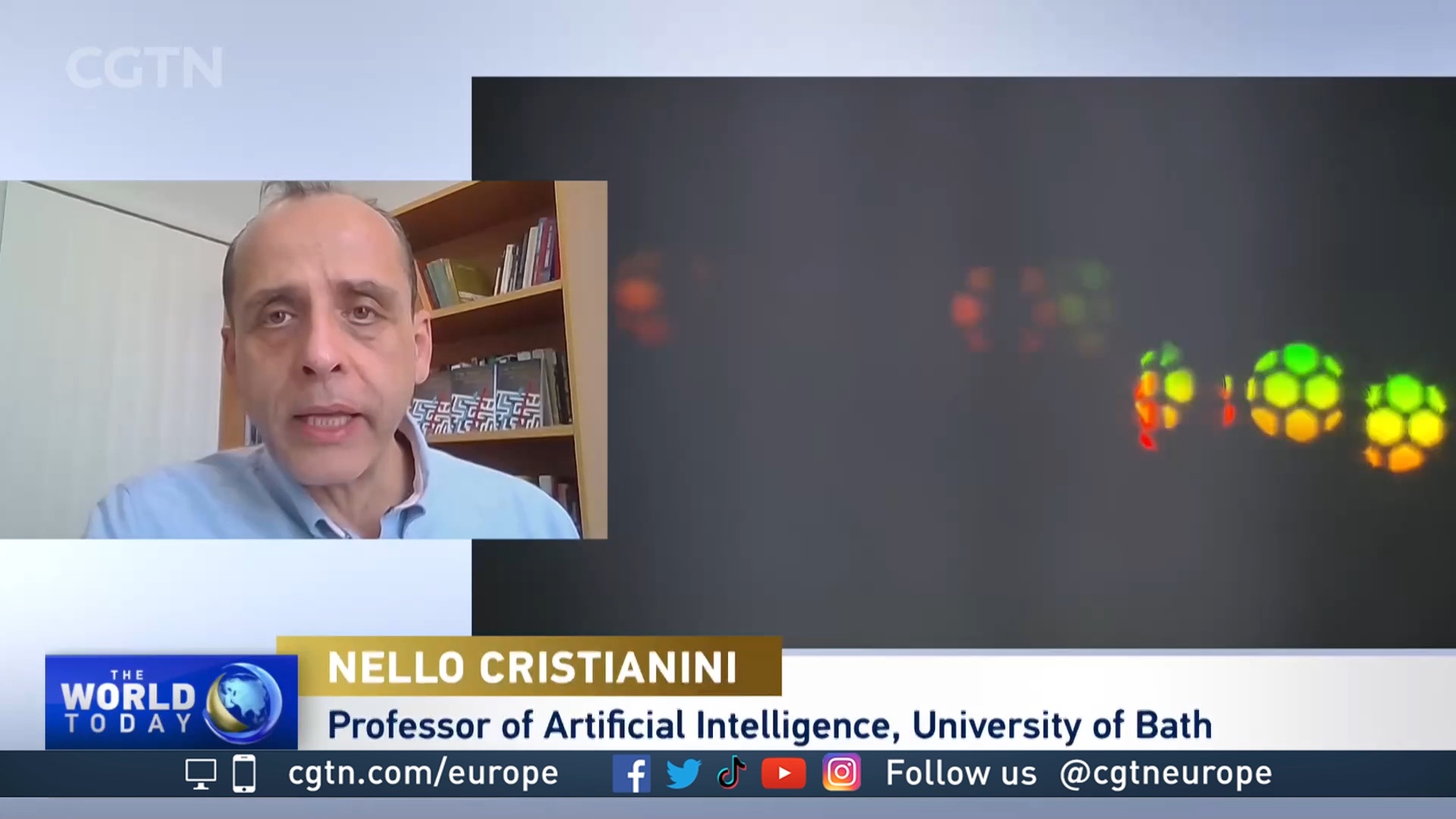03:23

Artificial intelligence is already embedded within our daily lives. It runs the advertisements we see on our social media channels, robots that manufacture products in factories and powers chat bots that answer customer queries on websites.
But the rapid progress made by AI and the increasing use of the technology across different industries and countries has prompted the European Union to propose a new law - the EU AI Act - that is designed to prevent AI being used in sectors and environments that pose a risk to humanity.
AI is defined as the ability of a machine to display human-like capabilities such as reasoning, learning, planning and creativity. But there are increasing fears that it could be used by governments or political parties to influence what we see online or by dark actors for malicious purposes.
READ MORE
Chinese company highlights power of AI in human world
China electric vehicle makers winning battle for EV market
Man arrested after two shot dead in Mercedes factory
Now, the EU is moving to de-risk the technology by rolling out the EU AI Act - but what is it and how dangerous is AI for humanity? CGTN asked Nello Cristianini, an Italian computer scientist who has written a book - The Shortcut: Why intelligent machines don't think like us - to find out more.
Why has the EU proposed the EU AI Act?
"It is such a new technology that we don't know a lot about what it can do, but we do know that it makes very important decisions for us and we want to be able to trust those decisions. Some of the problems can be about the accuracy of the decision, sometimes about its fairness or its relation to other fundamental values in Europe, like equality. So a decision has to be proven to be fair and accurate at the very least. And that is the goal of the AI act."
AI is a constantly evolving technology - how difficult is it to regulate a technology like this?
"Very hard. And this is why the AI act is focused mostly on regulating specific uses of AI, not the technology per se. So the application of AI to some types of domains is regulated. For example, using AI for granting a loan – that is regulated in a special way."
If these rules come into force they'll govern technology that is already widely used - what does that mean for businesses and governments that use it?
"Well, these kind of laws first of all establish principles and general expectations, and I think it's appropriate that a country has its own values and Europe is stating its voice here. But remember, there's going to be exceptions for law enforcement for specific cases which are not controlled by the AI act, and also to take a while to come into force. It is not something changing tomorrow, for sure."

AI is already embedded within our daily lives, powering things like chatbots and robots in factories, but there are fears it could endanger humans if it's used for malicious purposes./Reuters/Dado Ruvic.
AI is already embedded within our daily lives, powering things like chatbots and robots in factories, but there are fears it could endanger humans if it's used for malicious purposes./Reuters/Dado Ruvic.
Chatbots like Chat GPT aren't mentioned in this law - is the legislation already out of date?
"No. One reason is that what we call general AI or foundational AI, is a technology, not a use. So when you're using a chatbot in a specific domain, then it is already regulated by the current law. Remember, it regulates the application of the AI to specific matters. GPT itself is a general technology. If you apply it to a video game, it would be fine; when you apply it to make personal decisions about liberty or equality, then it'll be covered by the current legislation already."
Governments and businesses have struggled to regulate technology like this so far - will this be any different?
"It will be difficult because we are in a competitive environment – industries compete, countries compete. Being the only one to stop is never easy. But the European Union is a large enough bloc with a large enough agreement on these fundamental values. I expect that the companies will have to follow the European regulations in order to operate in the European market."
Subscribe to Storyboard: A weekly newsletter bringing you the best of CGTN every Friday